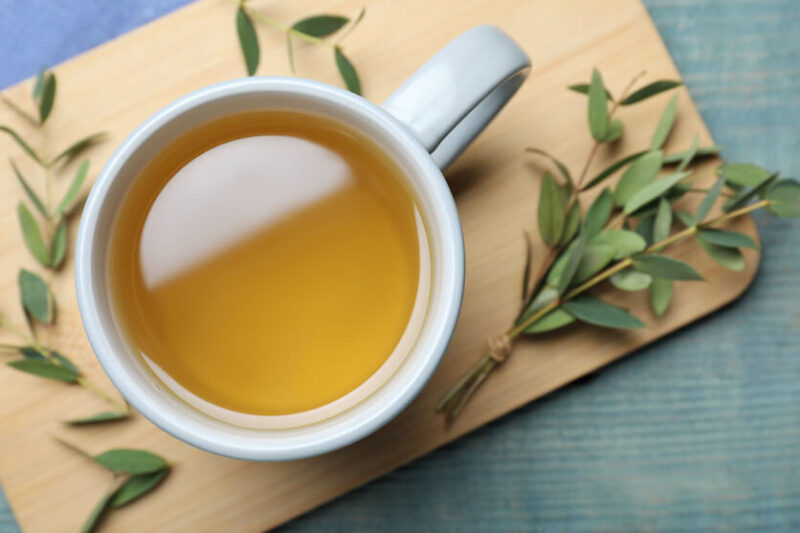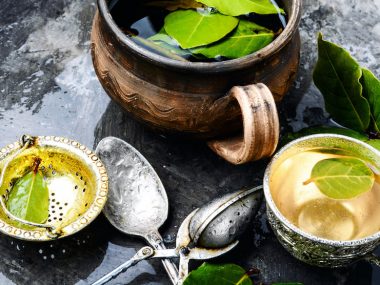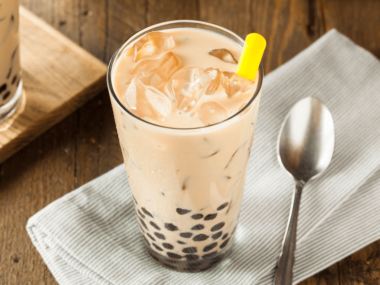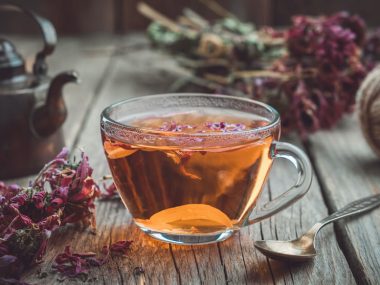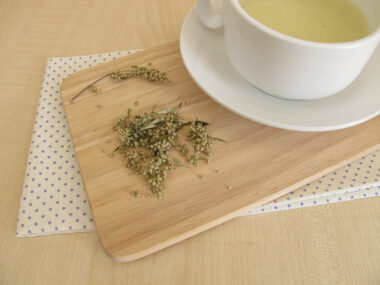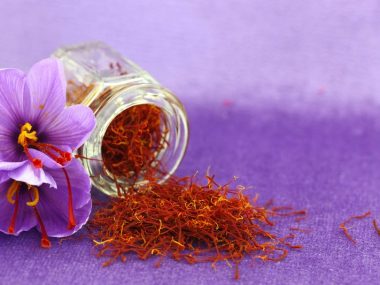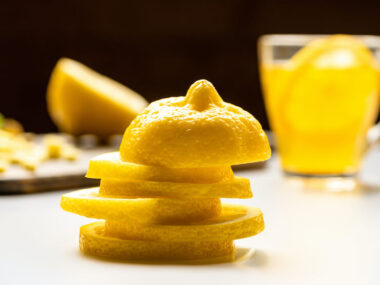Cute and cuddly Koalas may be able to stomach this plant, but can humans? What’s marketed as a simple herbal remedy may prove to be far riskier. This is a must-read, especially if you are an avid tisane drinker. Eucalyptus tea may taste refreshing, but should be consumed in moderation!
Table of Contents
What Is Eucalyptus Tea?
Eucalyptus tea is made from the leaves of a Eucalyptus plant species (typically Eucalyptus globulus.) There are variations of this tea, however. The most common form consists of water and a few Eucalyptus leaves, which are brewed.
What Is Eucalyptus?
When we think of Eucalyptus, most of us associate this plant with Koalas in Australia nestled within a Eucalyptus tree nibbling away at the leaves. These leaves are the main staple of a Koala’s diet.
Or perhaps you associate this plant with a common floral filler for wreaths and flower arrangements. You’ll find dried Eucalyptus in the dried flower section of most any craft store because of its popularity in floral arrangements.
Eucalyptus got its official name back in 1788. The Greek translation for Eucalyptus is “well covered” (‘eu’ means ‘well,’ and ‘kalyptos’ means ‘covered.’) Its origins are said to be in Australia and Tasmania.
There are hundreds upon hundreds of different Eucalyptus species growing all around the world. According to the Integrated Taxonomic Information System (ITIS), there are many Eucalyptus plant species.
The History of Eucalyptus Tea
Indigenous people of Australia and other countries have leaned on this plant to treat various ailments. Tinctures, teas, and salves were used to help with colds, upper respiratory viruses, and more. But tannins in Eucalyptus leaves are high, causing the tea to be quite unpleasant to consume. Tannins in teas give it an astringent, bitter flavor.
In 1997, a researcher patented Eucalyptus tea. Kenji Shimababukuro of Japan prepared the tea in a specific manner which was steaming, twisting, and drying. Shimababukuro’s patent report noted the tannin content of the tea was 13.6% (which is a considerable amount.) The astringency of the tea was thought to have better pharmacological benefits.
Modern folk medicine figured out how to make the tea more palatable by combining it with other teas and spices. The International Conference on Sustainable Agriculture and Biosystem 2020 published a study in which researchers discovered a better way to make Eucalyptus tea by combining it with a ratio of about half black tea and a little over a third of cinnamon.
Finding Eucalyptus tea may prove challenging because few retailers sell it. The majority of the tea is sold by individual herbalists. Furthermore, you’ll be hard-pressed to find this tea sold in a tea shop.
What’s In Eucalyptus Tea?
Eucalyptus tea leaves are the main ingredient. The leaves typically come from Eucalyptus globulus; however, it’s not unusual to find tea made from other Eucalyptus species. Infusions or blends of black or green tea, herbs, fruit, flowers, or spices may also be combined with the Eucalyptus leaves to enhance the flavor.
What Does Eucalyptus Tea Taste Like?
As a standalone tea with no other ingredients, the first and foremost comment you’ll hear about the taste of this tea is that it’s bitter with a menthol finish. The bitterness comes from the high levels of tannin. Hints of woody mint faintly hide in the overall flavor.
How Is Eucalyptus Tea Processed?
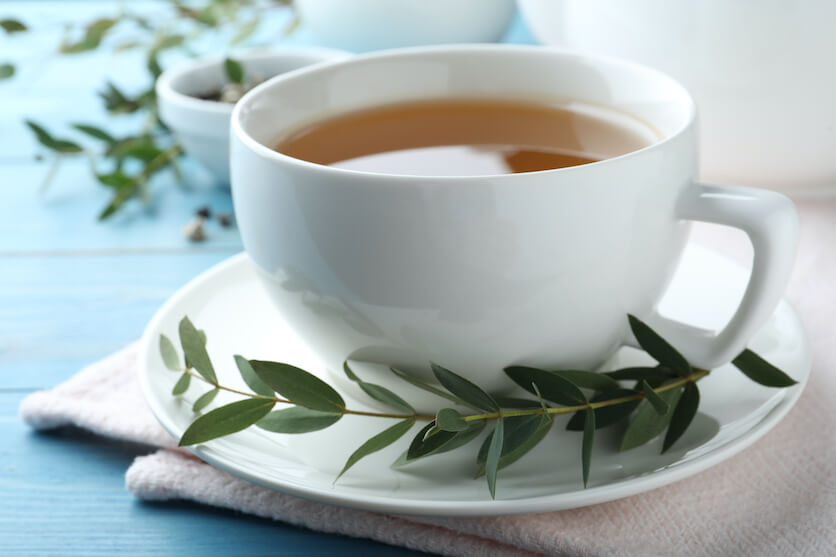
Because Eucalyptus tea is not a true mainstream tea but rather a tisane (herbal tea,) it’s difficult to say exactly how the tea is processed. Other factors such as where it’s grown, what species it is, and who is processing it all dictate how the plant is treated and transformed into tea.
We can provide you with the patented processing method that Kenji Shimababukuro (Japan, 1997) developed to give you an idea of how he processed his tea. His goal was to produce a dried form of standalone Eucalyptus tea. Shimababukuro used two species to produce the tea: Eucalyptus Robusta (native to Australia but widely introduced throughout the world) and Eucalyptus citriodora (also native to Australia.)
Steaming
The plucked leaves were subjected to water vapor (steam) to stop the leaves from oxidizing. This step is also known as “fixing” in the processing of true tea (black, green, white, oolong.) Steaming also softened the leaves, which was claimed to enhance the aroma and make them easier to “roll” (or, as Shimbabukuro calls it, “rumple-twist.”) The leaves are steamed for thirty seconds in 212 degrees (F) water vapor.
Cooling
The steamed tea leaves are rapidly cooled to preserve the overall color and appearance.
Drying And Rolling
The cooled tea leaves are then dried and go on to be rolled (rumpled-twisted.) Additional drying removes moisture resulting in the finished leaves having a moisture retainment of about 5%.
Grinding
The dried tea leaves are finely ground. Once ground, the tea goes on to be packaged.
How Much Caffeine Is In Eucalyptus Tea?
Eucalyptus tea as a standalone tisane (herbal tea) does not contain caffeine. However, if it is combined with a true tea such as black or green tea, a six-ounce cup of the tea can have up to 50 mg of caffeine. Herbal teas are caffeine-free, which is what makes them more attractive to those avoiding caffeine.
Can I Just Boil Eucalyptus Leaves and Drink It?
Boiling Eucalyptus leaves to make a tisane (herbal tea) is the common method. However, there’s little research on how various species of Eucalyptus affect the body. What little we do know from the reports we provide to you, different species have been studied.
Eucalyptus Tea Benefits
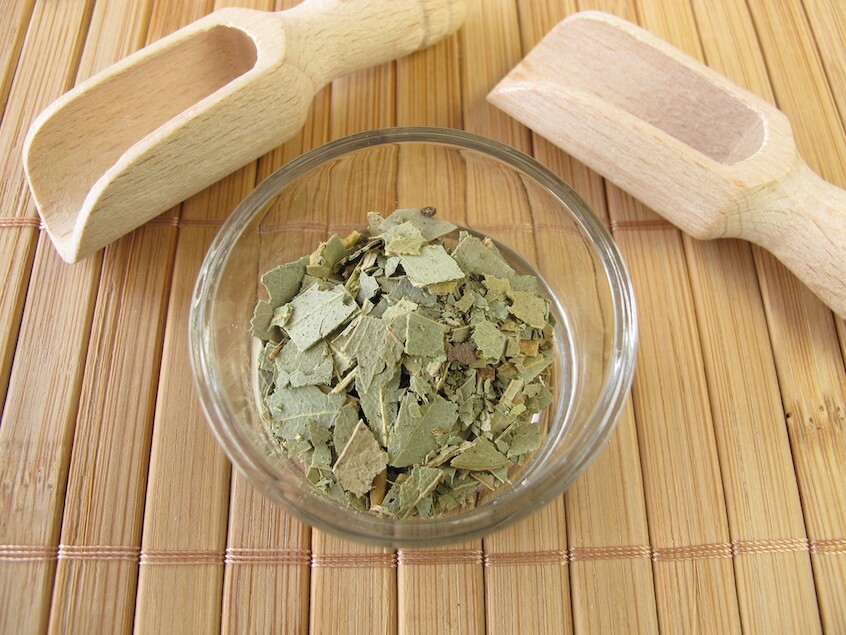
Researchers published a study (Immune-Modifying and Antimicrobial Effects of Eucalyptus Oil and Simple Inhalation Devices) where they noted Eucalyptus as having numerous health benefits. Eucalyptus acts against Staphylococcus aureus, MRSA, Candida, upper respiratory infection, colds, and the flu.
Researchers with the Department of Biology and Ecology at the University of Novi Sad (Serbia) discovered how Eucalyptus plays an active role in dental health. The study noted how Eucalyptus (Eucalyptus camaldulensis) inhibited 13.9% of biofilm from forming on teeth. Biofilm is responsible for the decay of teeth and gum disease.
In a study titled “Antimicrobial Activity of Eucalyptus camaldulensis,” researchers found that Eucalyptus reduced certain viruses such as Coxsackie B4, Rotavirus Wa, and Herpes Simplex-1. Eucalyptus does not prevent these viruses but rather decreases the risk of getting them.
A published study (“Effect of Eucalyptus Oil Inhalation On Pain and Inflammatory Responses After Total Knee Replacement: A Randomized Clinical Trial“) indicated the pain was reduced by inhaling Eucalyptus.
Can I Drink Eucalyptus Tea Every Day?
We do not have the professional or medical expertise to make any recommendations or give advice on consuming tea. We are able to provide you with evidence-based information to help you make an informed decision to enjoy any tea, regardless of it being a tisane or true tea.
Discerning whether or not Eucalyptus tea is safe for daily consumption should rely upon consulting with your healthcare provider. Tea of any kind should never replace medical treatment when needed. By speaking to your healthcare provider, you will be able to find out if any medical condition you have or medications you are taking may interact with drinking this tea.
Is Eucalyptus Leaf Tea Bad For You?
Eucalyptus globulus (the most common species used to make this tea) is listed as “Generally Recognized As Safe” by the U.S. Food and Drug Administration and the Environmental Protection Agency. But children, pregnant and nursing women, those with medical conditions or on medications are discouraged from consuming Eucalyptus tea.
As we present to you our findings on the safety of Eucalyptus tea, keep in mind that Eucalyptus leaves (used to make the tea) contain the compounds and constituents used to make essential oil. The mention of Eucalyptus essential oil is widely mentioned in various evidence-based reports we go on to highlight.
The Royal Children’s Hospital of Melbourne published an article (Eucalyptus Oil Poisoning) stating the dangers of ingesting this essential oil. The article states that Eucalyptus oil is highly toxic and that even low amounts ingested prove to be severe, causing symptoms to appear 30 minutes to 4 hours after ingesting.
The World Health Organization’s International Peer-Reviewed Chemical Safety Information lists Eucalyptus oil as toxic and poisonous. They go on to note lethal doses for adults and children and how this oil affects the body. Once ingested (at certain doses,) acute poisoning occurs, causing unconsciousness, breathing difficulties, convulsions, stomach pain, vomiting, diarrhea, rapid/irregular heartbeat, and a host of other problems. Once poisoning occurs, there’s no treatment other than to make a patient as comfortable as possible.
How To Make Eucalyptus Tea
Although we can’t recommend consuming Eucalyptus tea because of the health implications as stated in the various evidence-based reports we have presented to you, we can give an alternative tea recipe to try that is similar to Eucalyptus tea’s menthol cooling effects.
Refreshing and Aromatic Green Mint Tea
This lovely tea is soothing if you are suffering from a cold or as a cooling iced tea in the summer.
Ingredients
- 2 cups of water
- 2 teaspoons of loose leaf Morrocan Mint green tea
- 1 sprig of fresh mint
- ¼ teaspoon of local raw honey
Directions
- Heat the water until it reaches 185 degrees (F.)
Tip: Because this is a green tea, it’s important not to boil the water. Green tea is much more delicate.
- Remove from the heat.
- Place the loose leaf tea in a tea infuser and drop it into the hot water.
- Cover and allow to steep for 3 minutes.
- Pour into a teacup and garnish with the sprig of mint.
- Add the honey, stir, and enjoy.
Tip: Inhaling the tea’s aroma provides a similar effect as Eucalyptus tea.
Proceed With Caution
Now that we have given you ample information supported by solid research results, consuming Eucalyptus tea consumption requires careful forethought. This is especially true if you have any medical conditions or are taking medications. Is the risk worth six ounces of tisane?
